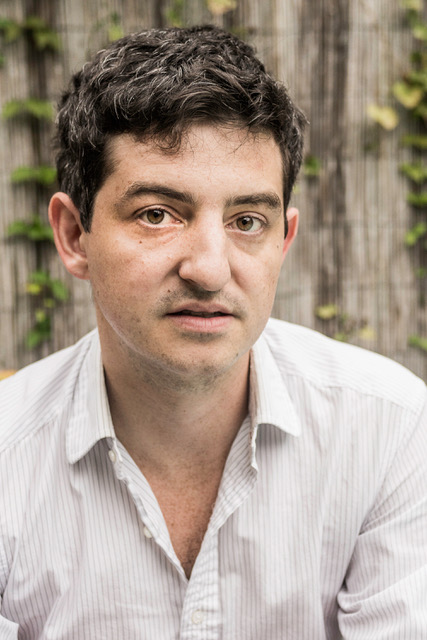
Nathaniel Rich
Best Selling and Award Winning Authors
Travels from:Nathaniel Rich
Nathaniel Rich is the esteemed novelist and essayist. Multiple works of his short fiction pieces have been finalists for honorable awards; “The Northeast Kingdom” and “Blue Rock” were finalists for the National Magazine Award for Fiction. Additionally, “Blue Rock” was awarded the 2017 Emily Clark Balch Prize for Fiction. His 2019 Losing Earth: A Recent History was long-listed for the 2020 Andrew Carnegie Medals for Excellence. Between 2005 and 2010, Nathaniel Rich served as Fiction Editor for the Paris Review.
A writer for The New York Times, Nathaniel Rich’s essays on literature have been regularly featured in the Atlantic and the New York Review of Books. Furthermore, Nathaniel’s essays have appeared in Rolling Stone Magazine, Harper’s, and Men’s Journal in addition to several anthologies including Best American Nonrequired Reading and Best American Science and Nature Writing.
In 2005, he published a work of film criticism, San Francisco Noir: The City in Film Noir from 1940 to the Present, which Martin Scorsese called “a fascinating work of criticism disguised as a guided tour around a great city.”
Check out a list of Nathaniel Rich’s books on bookshop.org.
| Book Cover | Details |
|---|---|
|
Trade Paperback
|
From the author of Losing Earth, a beautifully told exploration of our post-natural world that points the way to a new mode of ecological writing....Read More
|
|
Trade Paperback
|
|
|
Trade Paperback
|
New York City, the near future: Mitchell Zukor works on the cutting edge of corporate irresponsibility, and business is booming. A brilliant mathematician, he spends his days calculating worst-case scenarios for FutureWorld, a consulting firm that indemnifies corporations against potential disasters. As Mitchell immerses himself in the calculus of ...Read More
|
The virtues of the proposed Green New Deal: its purpose, its prospects, and its strategic goals
How, despite attacks from the right (and even from many politicians on the left) that call its aims utopian, Alexandria Ocasio-Cortez’s plan bears a striking resemblance to major, bipartisan climate bills proposed in Congress during the late 1980s—plans that at the time were hailed by members of both parties as pragmatic, necessary, and just.
The Sunrise Movement
The Sunrise Movement and the young leaders who have brought political momentum to the issue by speaking about the climate crisis in a new way: as not merely a political and environmental crisis but as a moral crisis.
Moral Argument
How this moral argument developed, from pleas by island nations in the late 1980s to a new articulation by Pope Francis and the Catholic Church, and now embraced by youth climate movements all over the world.
Our World
Why one environmental campaign (to “fix” the ozone layer in the 1980s) was wildly successful, while the current, more generalized call to combat climate change has tended to overwhelm voters or lead to apathy and inaction. What it will take for human beings to act on climate change, now that there are real technical solutions—how it is not enough for voters simply to favor action, but how it must become the main priority. How this can be achieved. Why the economics of climate change fail to motivate politicians to act. The intellectual debate, little known outside of academic circles until now, among political theorists, over how much value human beings assign to the future.
Nathaniel Rich wrote for The New York Times Magazine about how certain climate policies can actually hurt those it is trying to help. Losing Earth named as a finalist for the 2020 PEN/E.O. Wilson Literary Science Writing Award. Losing Earth was long-listed for the 2020 Andrew Carnegie Medals of Excellence. Nathaniel Rich contributed a round-table piece about the role of fiction in addressing climate change for Literary Hub. Grist ran an interview with Nathaniel Rich on Losing Earth. Literary Hub ran an excerpt from Rich’s Losing Earth. WYPR’s Midday interviewed Nathaniel Rich. SFGate reviewed King Zeno by Nathaniel Rich. Terry Gross interviewed Rich on NPR’s Fresh Air. Nathaniel Rich was interviewed on WWNO’s The Reading Life. Atlantic Journal Constitution featured Losing Earth in their round-up of “10 Southern Books We Want to Read in 2019.” New Orlean’s The Advocate ran an interview with Nathaniel Rich. Visit Nathaniel Rich’s personal website.
Praise for Losing Earth
“Rich’s righteous rhetoric, supported by a command of the facts, has a sharpness comparable to Thomas Paine’s pamphlets arguing the case for U.S. independence from England.”
—Atlanta Journal-Constitution“Exceedingly well-written . . . a must-read handbook for everyone concerned about our planet’s future . . . Losing Earth is eloquent, devastating, and crucial.”
—Booklist starred review“Reading like a Greek tragedy, Losing Earth shows how close we came to making the right choices—if it weren’t for our darker angels.”
—NPR.org“[A] gripping, depressing, revelatory book . . . Climate change is a tragedy, but Rich makes clear that it is also a crime—a thing that bad people knowingly made worse, for their personal gain.”
—John Lanchester, The New York Times Book Review“Rich narrates his fable with the bite and flair of a seasoned journalist . . . Losing Earth beautifully underscores what it would mean to lose our Earth, but also plots a few steps—wobbly, tentative—toward saving it.”
—Chapter 16“An eloquent science history, and an urgent eleventh-hour call to save what can be saved.”
—Nature




